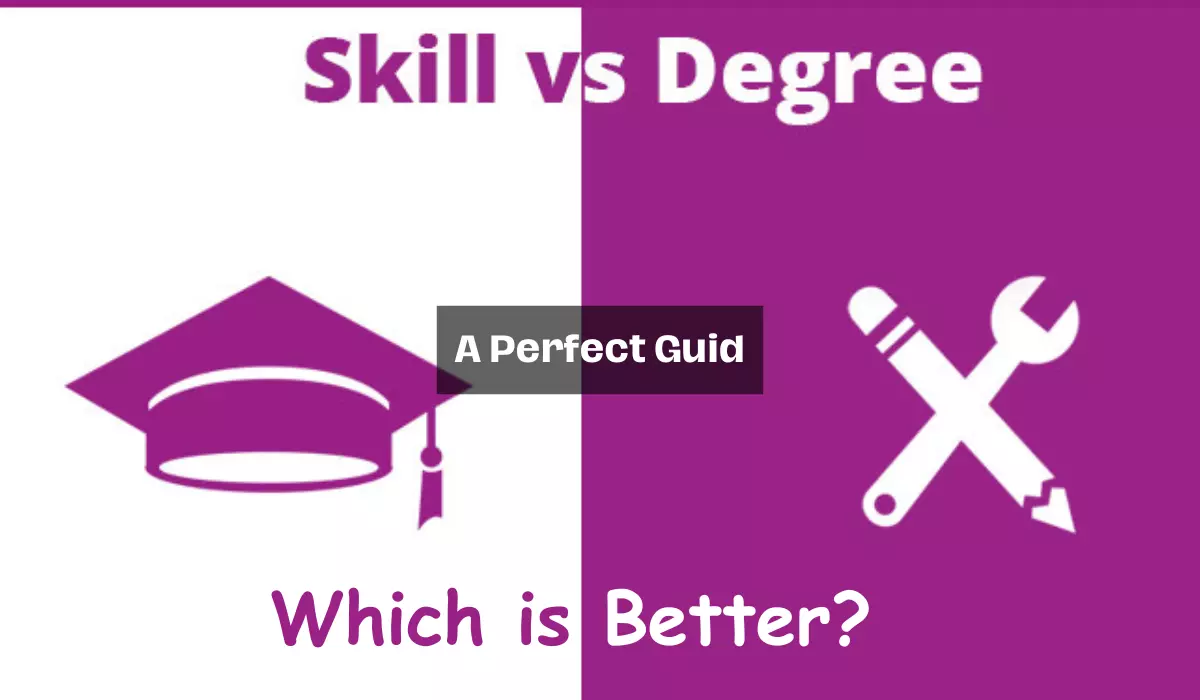When it comes to building a successful career in Pakistan, the age-old debate of “Education vs. Skills” has been a topic of discussion for years. Many individuals, parents, and policymakers grapple with this dilemma, wondering which path is better for securing a bright future.

In this perfect guide, we will delve into the pros and cons of both education and skills development in the context of Pakistan. By the end of this article, you’ll have a clearer understanding of which path may be more suitable for you.
Education: The Traditional Path
Education has long been considered the foundation of a successful career in Pakistan. Let’s take a closer look at why it holds such importance.
#1. Education equips individuals with a broad knowledge base. Formal education, such as primary, secondary, and higher education, provides students with a structured curriculum that covers a wide range of subjects. This knowledge is often essential for pursuing careers in fields like medicine, engineering, and academia.
#2. Education offers social recognition and status. In Pakistan, having a degree from a reputable institution is often seen as a mark of prestige. It can open doors to various opportunities and enhance one’s social standing.
#3. education fosters critical thinking and problem-solving skills. It encourages students to analyze information, make informed decisions, and adapt to new challenges—a valuable asset in any career.
Read more: What is the Scope of Computer Science in Pakistan
The Limitations of Education
While education is undoubtedly valuable, it’s essential to acknowledge its limitations and downsides.
- One major drawback of traditional education in Pakistan is its high cost. Pursuing a formal education, especially at prestigious institutions, can be financially burdensome for many families. This often leads to crippling student loans and financial stress.
- Another challenge is the rigid curriculum. Traditional education systems may not always keep pace with rapidly changing job markets, leaving graduates with degrees that are not immediately applicable to the current workforce needs.
- Additionally, education can be time-consuming. Degree programs often take several years to complete, which can delay one’s entry into the job market and the opportunity to start earning.
Skills: The Pragmatic Approach
In recent years, skills development has gained prominence as an alternative or complementary path to education. Here’s why skills are becoming increasingly important in Pakistan.
#1. Skills development is more accessible and affordable. Many short-term courses, workshops, and online platforms offer training in a wide range of skills at a fraction of the cost of formal education.
#2. Skills can lead to faster employment. Unlike traditional education, which often requires several years, acquiring a skill can take a relatively short time. This means you can enter the job market sooner and start earning.
#3. Skills are directly applicable to the job market. In Pakistan’s evolving economy, employers are increasingly valuing practical skills that can be put to immediate use. Having in-demand skills can make you a more attractive candidate.
Must read: What is the BBA Scope in Pakistan – Your Ultimate Career Game Changer
The Hurdles of Skill Acquisition
While skills development has its merits, it also faces its share of challenges in Pakistan.
- One challenge is the lack of standardized certification. Unlike degrees from recognized institutions, skills acquired through workshops or online courses may not carry the same weight in the eyes of employers.
- Another concern is the need for continuous learning. Skills can become outdated quickly in today’s rapidly evolving job market. Individuals pursuing skills development must be prepared to adapt and update their skills regularly.
- Not all skills are equally valued in the job market. Some skills may be in high demand, while others may have limited opportunities. Choosing the right skill to develop can be a crucial decision.
Know more: What is O Level and A Level Education in Pakistan
Conclusion: Education vs. Skills
The education vs. skills debate in Pakistan is not a one-size-fits-all scenario. It depends on your goals, financial situation, and the specific demands of your chosen career. Both education and skills have their merits and drawbacks, but finding the right balance between the two can pave the way for a successful and fulfilling career in Pakistan.
As you embark on this journey, remember that your decision should be informed by careful consideration of your aspirations and the ever-changing landscape of Pakistan’s job market. Whether you choose education, skills development, or a combination of both, your dedication and determination will ultimately be the keys to your success.